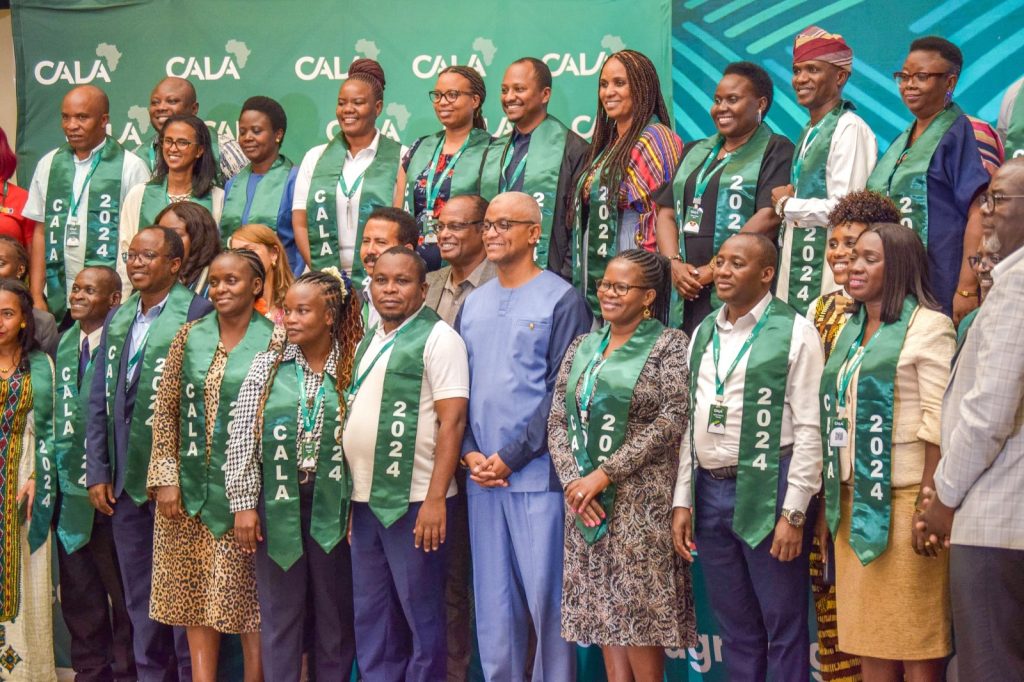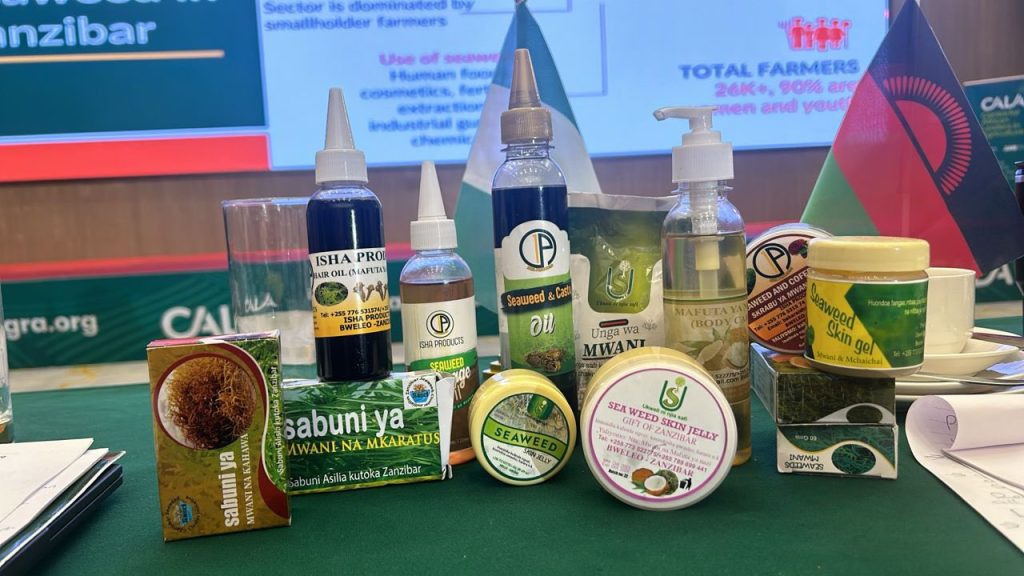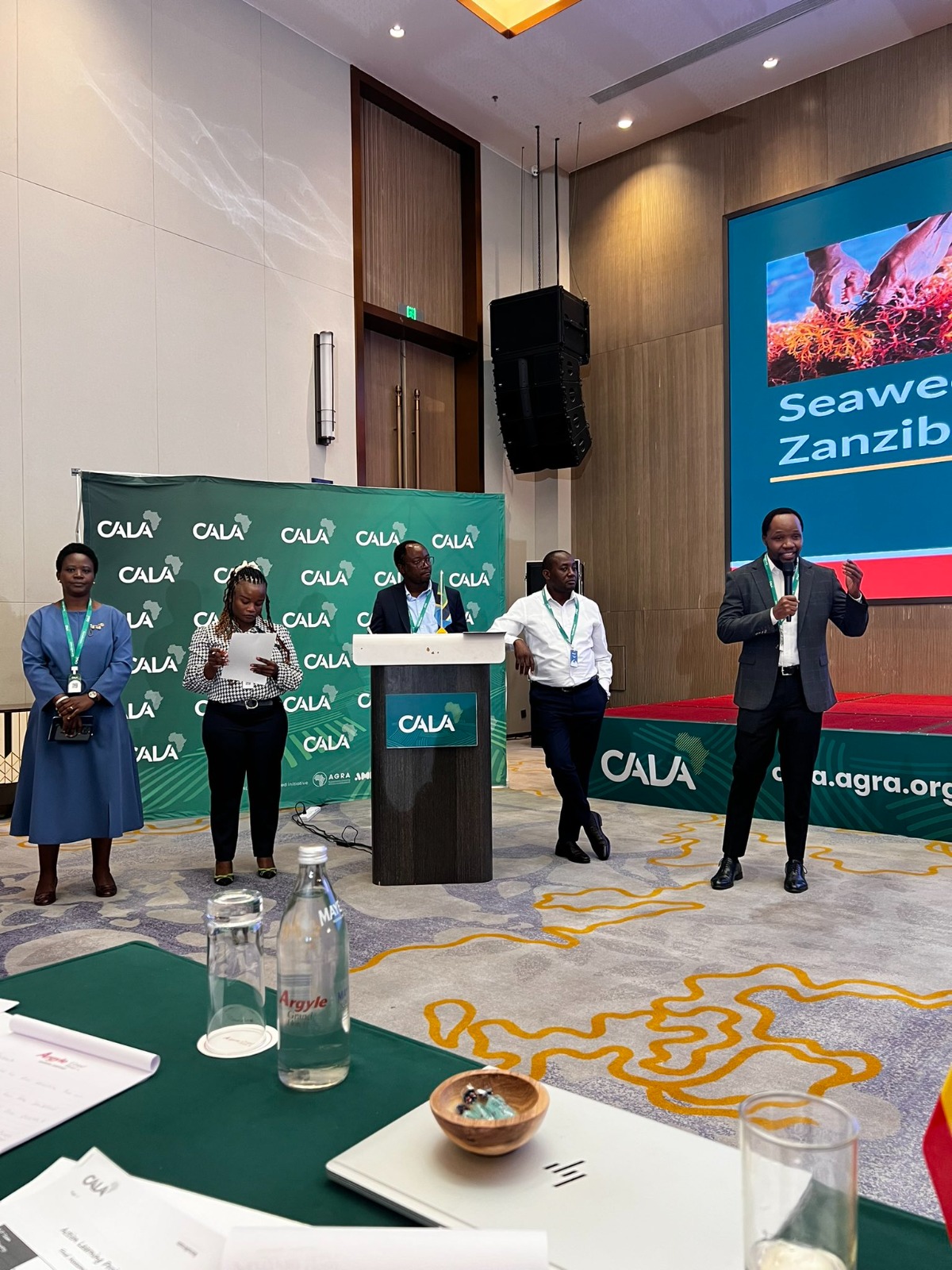On February 21, 2025, The Centre for African Leaders in Agriculture (CALA) celebrated the graduation of its third cohort, marking a significant milestone in the journey toward transforming Africa’s agricultural landscape. Among the 40 distinguished graduates from eight African countries was Mary Kigalu, Cluster and Partnership Specialist at SAGCOT Centre Ltd., who completed the rigorous 16-month Advanced Leadership Programme. This program equipped participants with the skills, networks, and innovative mindset necessary to drive meaningful change in Africa’s agrifood systems.
Mr. Harun Khator, OGW, Secretary of Administration at the State Department for Agriculture, Kenya, presiding over the ceremony on behalf of Principal Secretary Dr. Paul Ronoh, praised the graduates for their unwavering commitment to leadership, innovation, and food systems transformation. Hosted by AGRA, the event highlighted the emergence of a new generation of agricultural leaders poised to address the pressing challenges facing Africa’s food systems today.
Tanzania’s Twiga Cohort: A Journey of Growth and Transformation
The Tanzania-based group within Cohort 3, affectionately named “Twiga” after the Swahili word for giraffe—symbolizing vision and resilience—embarked on their transformative journey in 2023. Comprising senior leaders from government, private sector, and civil society, the cohort underwent accelerated professional growth throughout the program. By graduation, many had transitioned into more strategic and influential roles, reflecting deepened expertise, enhanced leadership capabilities, and a renewed dedication to driving agricultural transformation.
Members of the Twiga cohort include:
- Mary Kigalu : Cluster and Partnership Specialist, SAGCOT Centre Ltd.
- Moses Kabogo : Country Director, Lutheran World Relief
- Samora Chacha : Director of Planning, Policy and Research, Ministry of Tourism and Heritage, Zanzibar
- Abel Mtembei, PhD : Principal Agricultural Officer, Ministry of Agriculture
- Kobusinge Aloys, PhD : Senior Researcher, Tanzania Agricultural Research Institute
Their collective efforts culminated in the acclaimed presentation of the Twiga team project, which showcased groundbreaking work in Zanzibar’s seaweed industry.
Partnerships Powering Zanzibar’s Seaweed Revolution: Transforming Livelihoods with Limited Resources
Under the guidance of CALA, Team Tanzania supported the Private Enterprise Seaweed Value Addition (PESA) Project, demonstrating that even modest budgets can catalyze sustainable transformation when paired with strategic partnerships. With an initial investment of just $4,000, the initiative has empowered smallholder seaweed farmers in Zanzibar, enhancing productivity, incomes, and value addition across the sector.
From Struggles to Success: Transforming Zanzibar’s Seaweed Industry
For over two decades, small-scale seaweed farmers like Aisha Makungu faced numerous challenges, including low-quality yields, poor post-harvest handling, and limited access to value addition technologies. Despite Zanzibar being the world’s third-largest seaweed producer, generating over 8,000 metric tons annually, the industry struggled to translate output into profitability.
Through the CALA-supported PESA Project, Team Tanzania addressed these issues head-on, unlocking opportunities for more than 26,000 seaweed farmers—90% of whom are women and youth.
Key Achievements of the PESA Project
Despite working with a lean budget, the project achieved remarkable outcomes through targeted interventions in training, equipment provision, and market access:
- Empowering Farmers with Knowledge
- Trained 139 farmers on Good Agricultural Practices (GAP), including four model farmers to sustain community learning.
- Ensured gender inclusivity, with 90% of trained farmers being women and youth.
- Boosting Productivity and Income
- Increased seaweed yields from 350 kg to 512 kg per acre (a 146% improvement).
- Doubled the price per kilogram from TZS 1,000 to TZS 2,000, significantly boosting farmer earnings.
- Raised average farmer income from TZS 300,000 to TZS 600,000.
- Job Creation and Business Growth
- Created 31 new jobs for women and youth, exceeding the initial target by 155%.
- Strengthened the Ukweli ni Njia Safi Group (UNSG), a women-led cooperative, through a new business plan and database.
- Enabled UNSG to expand seaweed purchases from 3MT to 10MT per month, meeting growing demand.
- Value Addition & Modernization
- Provided advanced seaweed processing machines capable of handling 5MT per day, reducing reliance on costly trips to Pemba.
- Secured two solar dryers donated by Mavuno Lab, improving drying efficiency and product quality.
- Facilitated UNSG’s acquisition of $4,000 in grant funding from NEEC and a $6,000 loan to purchase a boat, enhancing supply chain logistics.
- Improved Post-Harvest Handling
- Enhanced post-harvest practices led to higher-quality processed seaweed, increasing profitability.
The Power of Partnerships
Central to the project’s success was the power of collaboration. Despite operating on a limited budget, partnerships with key stakeholders amplified its impact. AGRA’s CALA Cohort 3, Team Tanzania, local organizations, and private sector partners worked together to maximize resources, knowledge, and networks for long-term sustainability.
AGRA’s leadership training and mentorship program further empowered project implementers to mobilize resources and attract investments, setting a precedent for future agricultural innovations in Tanzania and beyond.
A Model for the Future
As Team Tanzania graduates from AGRA’s CALA program, their legacy is evident in Zanzibar’s thriving seaweed value chain. Beyond seaweed, this initiative exemplifies economic empowerment, environmental sustainability, and inclusive opportunities for smallholder farmers. For individuals like Aisha Makungu, it represents a shift from decades of hardship to a sustainable, profitable future.
This project underscores the potential of visionary leadership and collaborative action in addressing complex agricultural challenges. As AGRA’s CALA Cohort 3 moves forward, its impact will continue to inspire the next generation of African agricultural leaders.
CALA’s Impact on Agricultural Leadership
Established in 2021 by AGRA, CALA has revolutionized Africa’s agrifood systems by equipping government officials, private sector leaders, and civil society actors with advanced leadership and policy implementation skills. The immersive 16-month program empowers participants to champion national agricultural priorities, fostering a robust Pan-African network of visionary leaders.
Graduates from Ethiopia, Ghana, Kenya, Malawi, Nigeria, Rwanda, Tanzania, and Uganda are now positioned to influence policy-making, agribusiness development, and food security initiatives. Armed with newfound expertise, they are ready to champion sustainable agriculture, strengthen value chains, and enhance resilience against climate change.
As Tanzania’s CALA Cohort 3 steps into expanded roles, their contributions promise to be profound, paving the way for a brighter future for Africa’s agricultural sector.


